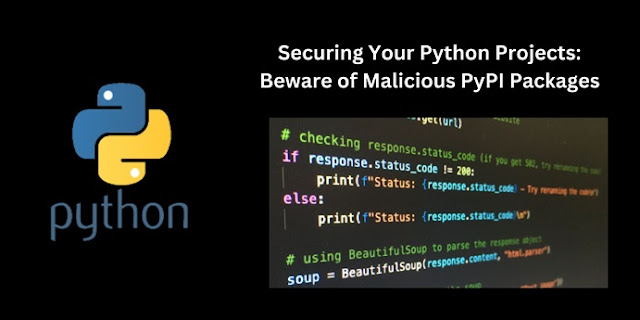Introduction:
In the dynamic landscape of open-source development, the Python Package Index (PyPI) serves as a vital hub for a diverse array of libraries and tools. However, recent discoveries have shed light on potential risks, with three malevolent packages—modularseven, driftme, and catme—making their way onto PyPI, collectively amassing 431 downloads in just a month. These packages posed a threat by deploying cryptocurrency miners on Linux devices, reminiscent of a previous campaign involving the culturestreak package.
Unveiling the Malicious Payload:
Hidden within the init.py file, the malicious code decoded and fetched the first stage from a remote server. This initial stage, encapsulated in a shell script named "unmi.sh," was responsible for obtaining a configuration file for mining activities and the CoinMiner file hosted on GitLab. The ELF binary file executed discreetly in the background, ensuring the sustained operation of the process even after the user's session had concluded.
Stealthy Tactics and Prolonged Exploitation:
Adopting a strategy akin to the culturestreak package, these new malicious packages took measures to reduce detectability by concealing their payload on a remote URL. Notably, an extra stage was introduced, enhancing the evasion of security software detection. Additionally, these packages strategically inserted malicious commands into the ~/.bashrc file, guaranteeing the persistence and reactivation of the malware on the user's device, thereby extending the duration of its covert operation.
Protecting Your Python Projects:
Given the evolving threat landscape, safeguarding Python projects requires a proactive approach. Consider these recommendations:
Verify Package Authenticity: Scrutinize the source, maintainers, and community reviews before installing any packages.
Regular Updates: Keep operating systems, software, and packages up-to-date with the latest security patches.
Dependency Scrutiny: Regularly review project dependencies to identify and eliminate potential security risks.
Virtual Environments: Isolate project dependencies using virtual environments to minimize the impact of security threats.
Security Tools: Employ security tools and scanners to detect and prevent malicious activities in your environment.
Monitoring and Logging: Implement mechanisms for monitoring and logging to promptly detect and respond to suspicious activities.
Conclusion:
The presence of malicious packages on PyPI underscores the importance of vigilance within the open-source community. By adhering to best practices, staying informed about security threats, and adopting proactive measures, developers can contribute to a secure ecosystem. Collaboration within the community and swift responses to threats are paramount for maintaining the integrity of open-source platforms like PyPI. Stay secure, stay informed, and continue contributing to the vibrant Python community.










0 Comments